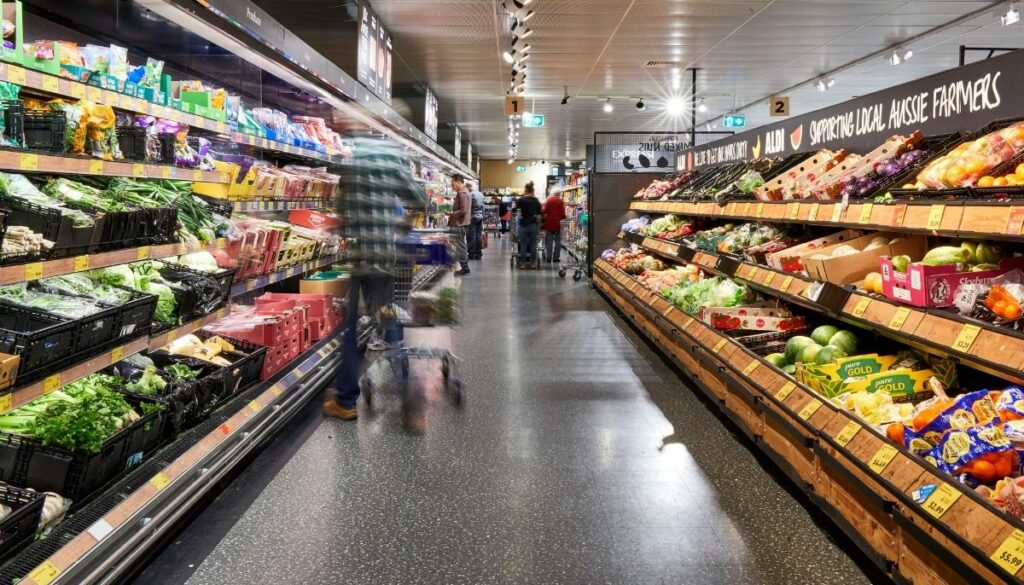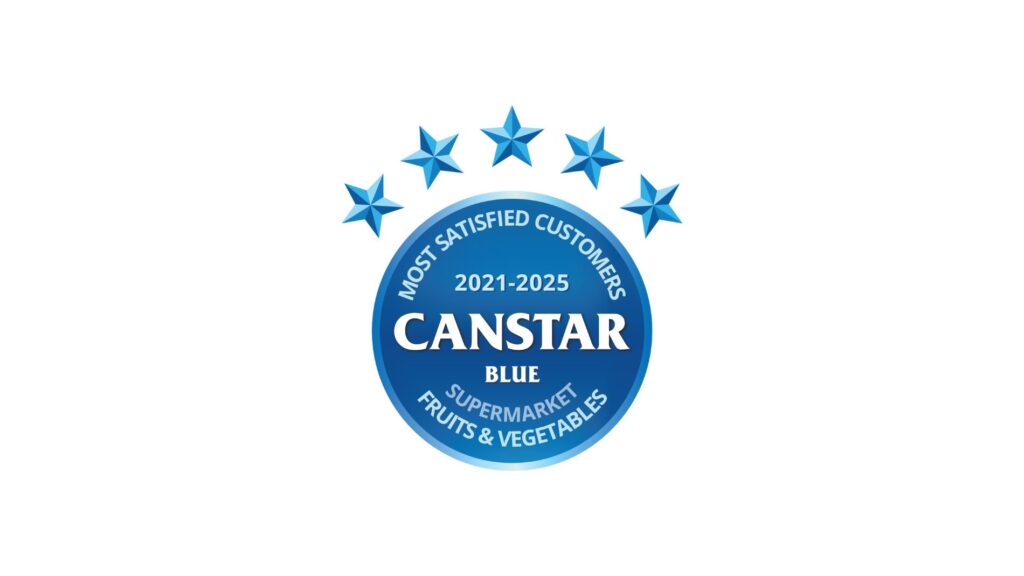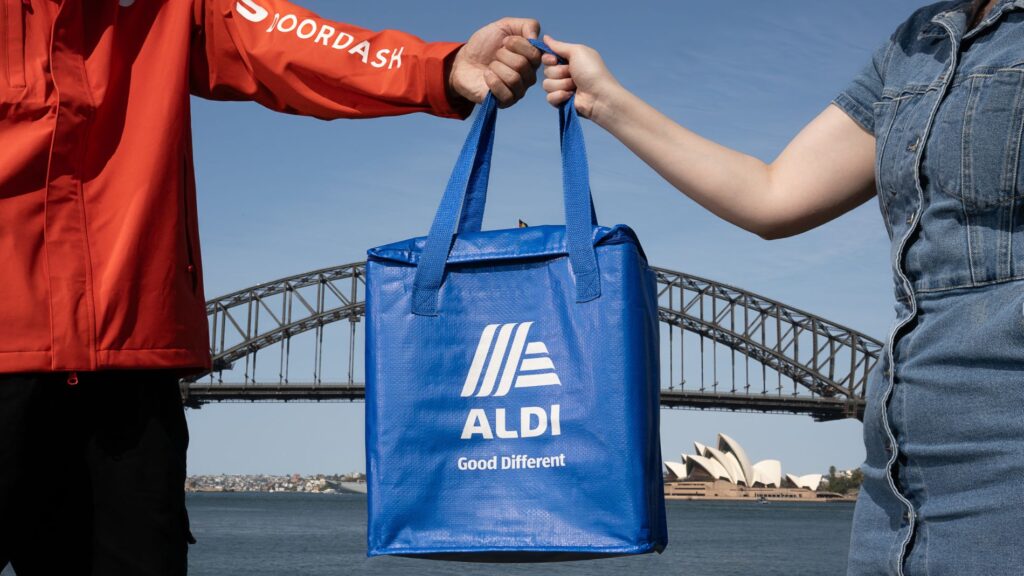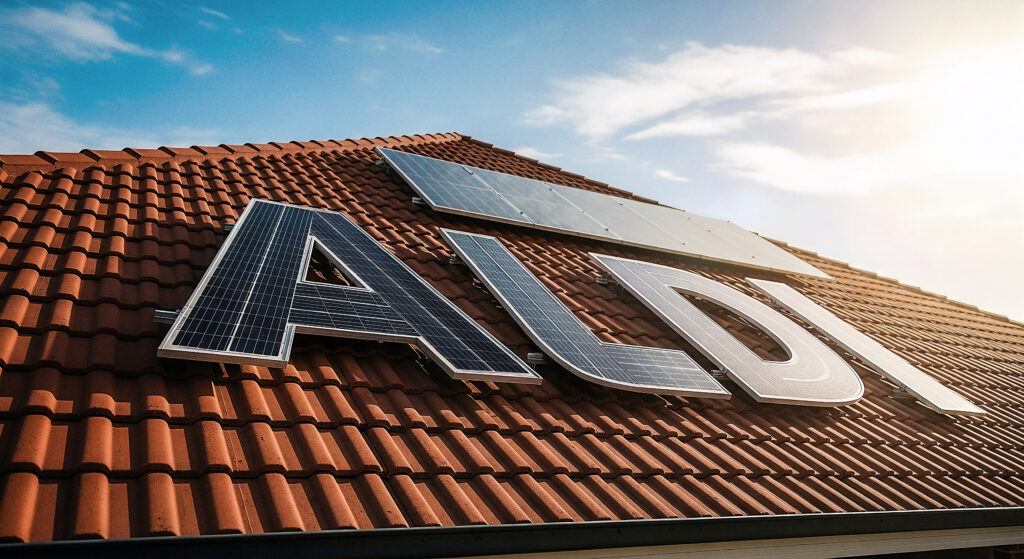Over the years, ALDI has taken a number of steps to reduce its impact on the environment. Today, ALDI publishes its inaugural Plastics and Packaging Progress Report. It outlines the supermarket’s progress and transparency towards achieving its goal of a 25% reduction of plastics and packaging by 2025 and what changes you can look out for in stores.
Swapping out single use plastic
To meet its commitments, a natural starting point was to eliminate problematic and unnecessary single use plastic. As part of this move, ALDI has swapped out single use plastic tableware, plastic straws and cotton buds. In place of these, ALDI will be introducing a new tableware range with plates and bowls made entirely of compostable sugar cane, and cutlery made from Birchwood. By no longer selling single use plastic tableware, ALDI has been able to save 322 tonnes of plastic from landfill. When it comes to cotton buds, by the end of the year you will find paper stems in place of plastic ones, avoiding over 357 million plastic stems from ending up in landfill each year.
“Starting with single use plastic is the best way to make small changes that have big benefits for the environment. These small changes are no small feat. We’ve been working with our Australian business partner BioPak over the past year to trial and test a variety of materials to find the right solutions and bring a non-plastic tableware replacement into the market later this year. We know our customers will be delighted at the new look and feel of the range that supports an environmentally friendly lifestyle,” said Aaron Nolan, Director – National Buying, ALDI Australia, leading the changes on the sustainable tableware range.
ALDI has always recognised the importance of preventing single use plastic from entering the environment, having never offered single use plastic bags – a move estimated to have saved 7.7 billion single-use plastic bags from being created.
Reducing plastic and packing on produce
The supermarket is focused on where they can reduce or remove plastic packaging from its produce. They have removed the plastic sleeves on spring onions entirely and customers may notice the switch from plastic punnets to cardboard trays across produce including:
- Apples and pears, 1kg packs- sold in New South Wales, Victoria and Queensland
- Truss tomatoes, 500g pack- sold in all stores nationally
- Roma tomatoes, 480g pack- sold in Queensland and Western Australia with plans to expand this to Victoria, South Australia and New South Wales
- Zucchinis, 500g pack- sold in New South Wales stores
- Capsicums, 375g pack- sold in duo packs in New South Wales
Earlier this year, the supermarket also removed plastic bags from banana stands.
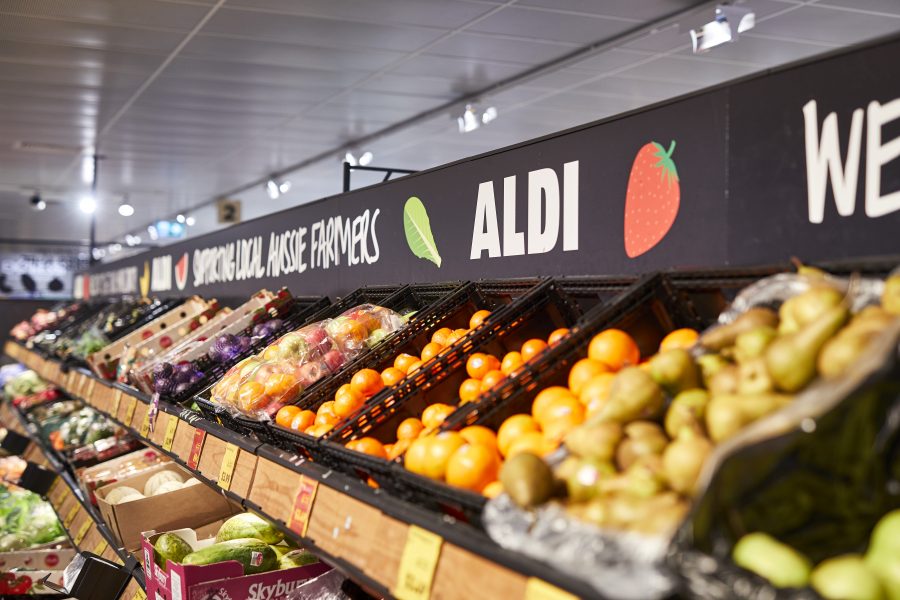
After reducing, comes recycling
Where they can’t eliminate the use of plastic, they are looking at how they can better create recyclable packaging and support the growth of Australia’s circular economy by creating demand for recycled materials.
First, ALDI tackled black plastic, which is difficult to detect in automated recycling facilities. In the meat range, with the support of suppliers, ALDI has seen great success in switching the black plastic packaging for clear plastic alternatives and a portion of this packaging is recyclable. ALDI customers should look for the ARL label to determine the best way to dispose of the packaging.
To support the development of Australia’s circular economy, ALDI has also committed to the packaging of their exclusive brands to be 100% recyclable, reusable or compostable by 2025. This year, they are making sure their paper and pulp packaging is certified sustainable and responsibly sourced or made from 70% recycled material. This includes everything from cardboard boxes, paper sleeves, tags, own brand toilet paper, tissues, kitchen towels, and baby products. Look out for the Forest Stewardship Council® (FSC) and Programme for the Endorsement of Forest Certification (PEFC) logos on products.
Packaging across ALDI’s own brand Choceur and Moser Roth chocolate ranges are entirely PEFC certified, which comes following the achievement of 100% sustainably sourced cocoa earlier this year.
The kerbside conundrum
When it comes to recycling, ALDI is also looking to simplify labels and help consumers navigate the complex kerbside recycling system. Of the 5.5 million tonnes of packaging material placed on the market annually, 88% is currently recyclable. However, just 49% is recovered for future use, with the rest ending up as landfill, or as litter on land and in our oceans.[1]
ALDI has been working in partnership with APCO to introduce the Australasian Recycling Label (ARL), a nation-wide labelling scheme that gives a clear breakdown of what to do with different components of packaging, reducing the level of contamination in kerbside recycling. ALDI has moved fast to implement the ARL labelling across its range. By the end of August this year, the supermarket has increased this to 4,253 products across their every day, Special Buys and seasonal ranges.
“In Australia we’re at a critical point for change. We need industry to support and grow demand for recycled materials. And we need customers to recycle the materials in the right way. We are working hard with partners like ALDI to ensure we’re creating sustainable packaging that is actually recyclable, and supporting customers to close the loop,” said Brooke Donnelly, CEO, APCO.
We’re still testing and learning
ALDI has acknowledged that despite the need to take immediate action to reduce plastics, and while remaining completely invested in this journey, achieving these commitments will take years.
As ALDI trials and tests new ways of doing things, the progress is varied from state to state and from one product to another. Earlier this year they trialled compostable nets on some fresh produce which unfortunately tore and were not a viable solution. They have accepted that failed trials are part of learning and despite a few setbacks this year, ALDI will continue to work with their partners to reduce plastic in stores. This year they have experienced some unexpected challenges in progress due to COVID-19. Some actions such as removing single-use straws attached to juice boxes have not yet been actioned. While they are working to remove the straws across these products, the challenges faced in the supply chain this year has caused delays.
Oliver Bongardt, Managing Director of National Buying, ALDI Australia said, “Achieving our commitments would not be possible without the collaboration of our business partners, who continue to help us facilitate change. We acknowledge that there are many challenges involved, which is why we developed an ALDI Plastic and Packaging Taskforce, made up of numerous stakeholders and business experts, to support the reduction of plastics in our supply chain and ensure that our internal stakeholders and business partners are best equipped for change.”
ALDI’s Top Tips to Reduce, Reuse and Recycle Plastic at Home:
- Reduce
- Invest in travel mugs to get your morning coffee fix on the go and reusable water bottles to stay refreshed wherever you are. Similarly, get outdoors and enjoy your lunch in nature with compostable or stainless steel tableware, lunchboxes and cutlery. All without disposables!
- Bring your own shopping bags and don’t use produce bags for bananas- they have their protective skin.
- Reuse
- Tired and forgot your travel mug? Don’t stress. Grab an empty jar and carry on with your caffeine hit.
- Instead of disposable sandwich bags, containers are sturdier (no more squished sandwiches) and can be reused!
- In December, for the second time this year, we’ll be offering bees wax wraps – the reusable way to keep your food fresh. According to our partners at Apiwraps the wraps have saved Australians from using over 6 million metres of clingwrap.
- Recycle
-
- We understand that recycling can be confusing. To help counteract this problem, we are rolling out the Australasian Recycling Label (ARL) across our own-label product range to make it clear whether the packaging belongs in the ‘recycling’ or ‘waste’ bin. In some cases, further action needs to be taken to ensure the material is recycled, such as scrunching aluminum foil into a ball, and these instructions are also included on the ARL.

